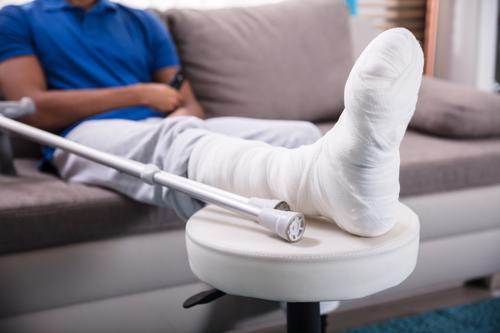- Auto Accident Attorney, car crash attorney in Georgia, carrollton ga auto accident lawyer, georgia auto accident lawyer
There will be an estimated 1,130 traffic fatalities on Georgia roads this year and over 110,000 injuries. Despite these many crashes involving different people and different circumstances, there are similarities for nearly all car accidents. In some way or another, nearly all these accidents have a common thread of damage either to person or to property. Additionally, these accidents share in common the fact that an insurance company is often involved. Whether it is your insurance company or that of another driver, there is a good chance that at some point after an accident you will have to deal with an insurance company. Unfortunately, even your own company may give you a hard time when it comes to your recovery. Insurance companies are businesses and they are not in the business of giving you money…even when you deserve it. That being said, having insurance can help you pay for others’ personal injuries and damage to others’ vehicles. If you elect to have more than the minimum coverage required by law, you can also alleviate some of your own financial burdens with insurance.
Georgia Insurance Requirements
An entire section of the Georgia code is dedicated to insurance. In Georgia, like in many other states, there is a requirement that every car on the road be insured. The reason behind this is to promote a public policy of safety. However, unlike many other states Georgia stands out in that you do not need to show an insurance card to indicate you are insured. In fact, insurance cards are no longer acceptable proof of your insurance coverage if you get pulled over by a law enforcement officer. Georgia uses a system known as the Georgia Electronic Insurance Compliance System, which is a database maintained by the state based on license plates. The electronic database allows for more effective enforcement of insurance laws and regulations. However, the database is only as accurate as the information provided to it by drivers. If you provide false information to the database, there is no easy way for the technology to identify and correct any errors.
Georgia Minimum Coverage Amounts
Insurance coverage is required in the state of Georgia. Georgia has minimum coverage amounts. As a driver in Georgia you must carry $25,000 in coverage for bodily injury liability and $50,000 for bodily injury coverage for multiple people in one accident. This figure is the total maximum amount your insurance company will pay if there are multiple people in an accident. Additionally, drivers must also carry $25,000 for property damage liability.
Bodily Injury Coverage
Bodily injury coverage deals with damage done to people. When you are the at fault driver, bodily injury coverage can help you pay for the injured parties’ medical or funeral expenses. While the state minimum is $25,000 it may be a good idea to have a higher amount of coverage because you would have to pay out of pocket for any costs exceeding $25,000. With the growing costs of ambulance rides and hospital visits, the minimum coverage can quickly disappear, leaving you to pay thousands of dollars in medical bills without the help of an offset. Many people cannot afford these medical costs and find themselves the subject of a lawsuit for the recovery of the balance. Lawsuits for car accidents can be long and challenging, especially without an experienced attorney.
Property Damage Coverage
Property damage coverage helps you pay for the repair or replacement of another driver’s vehicle when you were at fault in the accident. This can include when you were partially at fault. Property damage coverage does not cover damages on your own vehicle that you were the cause of. Similarly to bodily injury coverage, if the property damage of the other person’s vehicle exceeds your coverage, you will be responsible for the remainder of the balance.
Non-Mandatory Car Insurance Coverage
While Georgia requires minimum coverage for bodily injury and property damage coverage, there are many forms of optional insurance, that while not required by law can be beneficial if you are in an accident. One of the most useful types of optional insurance in Georgia is collision insurance. Collision insurance pays for damages sustained by your car during traffic accidents. While the law does not require you to have collision insurance, many banks will require you to obtain this type of coverage as a condition of giving you the loan when financing your car.
Another type of optional coverage in Georgia is referred to as comprehensive coverage. Comprehensive coverage protects your car from damage that results from events other than traffic accidents. This includes trees falling on your car, vandalism, and in some cases theft. Because this type of coverage is optional, you will have to pay an additional premium to receive it.
Some auto insurance plans also have provisions for a daily allowance for rental cars when your car is in the auto body shop or allowances for medical and funeral expenses. While the type of insurance coverage you can purchase may vary greatly from driver to driver – it is always a good idea to get the best coverage you can afford.
Driving Without Car Insurance in Georgia
If your car insurance is canceled (for example, if you fail to pay a premium) the Georgia Department of Driver Services will send you a letter informing you of your legal duty to comply with Georgia’s insurance laws. Driving without car insurance can lead to fines and the suspension of your license. For a first offense of driving without insurance your license may suspend up to 60 days. Depending on the circumstances of your accident you may also receive jail time.
Have You Been Injured in a Car Accident in Georgia?
At the Law Offices of John B. Jackson, we know how daunting the idea of dealing with insurance companies can be. Our skilled car crash attorneys in Georgia have the experience to help you recover the compensation you deserve. We are not afraid to negotiate with the insurance companies and take your case to court if that is what is needed. Contact us today for a free consultation.






